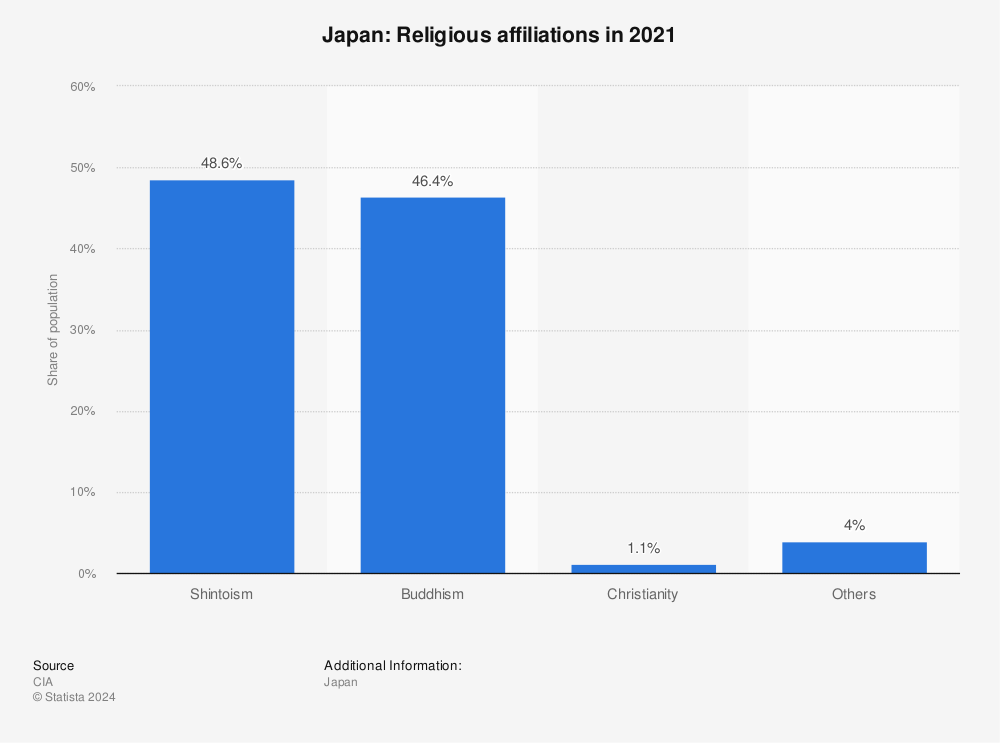religion in Japan
Religion in Japan is characterized primarily by two major faiths: Shinto and Buddhism. These religions have coexisted for centuries, with many Japanese people practicing elements of both simultaneously.
Shinto, which is deeply ingrained in Japanese culture, focuses on rituals and practices that honor kami, or spiritual deities. It is considered one of the oldest and most traditional religions in Japan. Buddhism, on the other hand, was introduced from the Asian mainland in the 6th century and has since played a significant role in shaping Japanese spiritual practices and beliefs.
According to recent data, around 48.5% of the population in Japan engage in Shinto practices, while Buddhism encompasses more than 46% of the populace. This indicates a strong cultural integration of these two religions in everyday life, as many people participate in rituals and celebrations from both traditions.
It's noteworthy to mention that Japan does not have a single dominant religion; rather, religious sentiment is quite varied among the population. While traditional practices from Shinto and Buddhism remain prevalent, recent surveys suggest that only a small percentage of the population considers religion to be very important in their lives, indicating a more secular approach to spirituality among many Japanese people.
For more detailed information on this topic, you can visit the following links:
- Religion in Japan - Wikipedia
- Religion in Japan - Japan Guide
- Japanese religion | Beliefs, Percentage, Shinto, Buddhism, & Pie Chart - Britannica
- Religion in Japan - Advantour
- Religious affiliation in Japan 2021 - Statista
- Religion in Japan - Reddit
- Religion and Spirituality in East Asian Societies
Sources


Related Questions
Work fast from anywhere
Stay up to date and move work forward with BrutusAI on macOS/iOS/web & android. Download the app today.
